
by Diane Masson | Sep 27, 2015
 Almost everyone wears a mask out in public. It can be exhausting to hide behind a fake exterior and pretend we have it all together. I meet seniors and sales people everyday that seemed poised and polished to the world and yet they are terrified inside.
Almost everyone wears a mask out in public. It can be exhausting to hide behind a fake exterior and pretend we have it all together. I meet seniors and sales people everyday that seemed poised and polished to the world and yet they are terrified inside.
Many seniors and sales people have lost the ability to be real and authentic. They have worked hard to create the illusion that everything is fine, because they fear showing their vulnerability.
Seniors walk into retirement communities everyday announcing that he or she is fine and “not ready yet” to make a move to senior housing. If you could pull off the mask, you might see a frightened senior who knows their memory is slipping, had a recent fender bender in the car or is just extremely lonely. That’s why they are exploring senior housing options.
Is this you?
Sale people may be dealing with an angry teenage daughter, a new baby, or ailing parents. They have to leave their breaking heart in the car and arrive for work with a mask of happiness.
Is this you?
Here are the three most common masks:
The I’m Fine Mask: You smile and say that everything is fine when your heart is breaking. It appears that you have it all, but you may feel lost inside. It is safer to hide, because people expect it.
The Performance Mask: You have the “to do” list. You keep up a frantic pace. If you stop performing then you are not worth anything at all. You want to matter and count.
The “I don’t care” Mask: You don’t bother with your looks. You do not seem to care. You are desperate to not be seen. You are certain that others will reject you.
Masks can be exhausting.
I know because I am usually wearing the performance mask. On top of working full time as a regional marketing director at two Continuing Care Retirement Communities:
My personality has always been driven. I have always increased the occupancy of any senior living community I was working with. I love achieving goals. It’s also important to create balance in my life so I don’t burn out. I just started a women’s bible study called, “Keeping the Balance.” It is already changing my life and helping me recognize the real me, so I can be authentic with you. Today, I had some me time. What a treat. Tonight I will be dancing with my husband at Oktoberfest.
Balance in life is important. The opposite of wearing a mask can be seniors and sales people who over share. They want to dump all their problems on you and it may not be at an appropriate time.
When my mom was in in later stages of dementia, her mask of pretending to be okay was gone. She just said whatever was on her mind.
How about you? What’s your mask? Have you found your balance?
Diane Masson has 19 years experience, both personally and professionally in senior housing. She is an author of two books with 5-star ratings, a weekly blogger and a regional marketing director of two Continuing Care Retirement Communities. Follow her newsletter on Tips2Seniors.com or Tips2Seniors on Facebook.
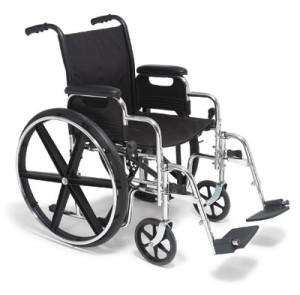
by Diane Masson | Sep 20, 2015
 If an aging senior has a new health diagnosis or is getting frail, what might happen in his or her future?
If an aging senior has a new health diagnosis or is getting frail, what might happen in his or her future?
Many seniors don’t realize that senior living communities often have minimum health requirements. If you have a diagnosis of a progressive disease, you may not qualify for certain types of housing. If you are in the later stages of Alzheimer’s, you may only qualify for memory care or skilled nursing care.
It is illegal for a senior housing care provider to let you move in and not be able to provide for your needs. Many seniors are stunned when they arrive at an independent senior living community to be told they have bypassed an independent living setting and that an assisted living community would provide a more appropriate level of care for them.
The conversation that a retirement counselor in a senior housing community dreads most is “the talk” with a future resident. As I write this, one Continuing Care Retirement Community (CCRC) that I work with had to turn down two senior applicants in the last six weeks. One applicant had a diagnosis of dementia and could not manage alone, and the other was too frail for independent living. Even though those seniors thought they were fine to move into independent living, they only qualified for assisted living.
Other CCRCs I worked with in the past would deny people admittance if they had ever had cancer, Parkinson’s, Alzheimer’s, multiple sclerosis, or anything that would send them quickly into a higher level of care for an extended period of time. How can they do this, you might ask? Well, it is a contract for services, and as long as they are consistent with all applicants, this is considered consistent with fair housing practices.
The proceeding has been excerpt from my new book, “Your Senior Housing Options.”
Have you ever heard of denying a senior (in a wheelchair) admittance into a retirement community? A senior prospect (in a wheelchair) said it happened to them at several communities. How can this be?
“Your Senior Housing Options,” has a simplistic title, but what’s inside this new book can save a you months of research time. Hear Diane Masson’s interview of how her mother and in-law’s faced the pivotal decision to plan ahead or wait until a crisis. Learn the pitfalls from transitioning from your home to senior housing. Understand what questions to ask, insider tips and dirty secrets revealed. For weekly tips join at: Www.Tips2Seniors.com
Diane Masson has worked in senior housing for 17 years and is the regional marketing director for two debt-free Continuing Care Retirement Communities in Southern CA (Freedom Village in Lake Forest and The Village in Hemet). Her first book “Senior Housing Marketing – How to Increase Your Occupancy and Stay Full,” is being utilized by senior housing professionals across the country. Both her first book and second book, “Your Senior Housing Options,” have a 5-star rating on Amazon.com.
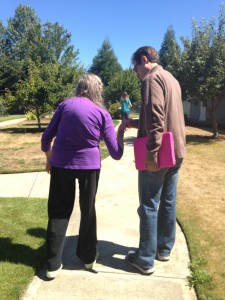
by Diane Masson | Sep 6, 2015
 A senior can easily become overly dependent on a caregiver. A helpless 92-year-old senior woman, who is recovering from a surgery, can suddenly become isolated in her own home and becomes reliant on her new around-the-clock caregiver.
A senior can easily become overly dependent on a caregiver. A helpless 92-year-old senior woman, who is recovering from a surgery, can suddenly become isolated in her own home and becomes reliant on her new around-the-clock caregiver.
In memory care communities, seniors with dementia rely on the loving support from their caregivers or fellow residents. Joyful smiles, from a dementia resident, may only be reserved for those who see them daily. Sometimes a wife learns that her husband in memory care has decided to marry his “friend.” The “friend” might be a caregiver 50 years younger or another resident.
“Dear Abby,” recently published a letter from a man in his late 60’s. He wanted to marry a 28-year-old woman with three children. His question for “Dear Abby” was should he do it? She suggested a prenuptial agreement.
A frail senior man moved into a residential board and care home to recover from a hospitalization. His wife was optimistic about his ability to recover and return home. Her other wish was to have him improve enough to move into a Continuing Care Retirement Community with her. Unfortunately, the caregiver at the board and care home did everything for the husband. The wife begged for them to help her husband recuperate, by letting him dress himself, strengthen his legs by standing up, improve his endurance by walking around the home and etc. Instead the caregivers continued to make him 100% dependent on them, so he grew weaker and wheelchair bound. Now this couple (married for 60 years) will not be able to live together again.
Unlicensed home care workers (fly-by-night) can take over the finances of seniors while they sleep. This happened to one of my neighbors. She became a prisoner of her own home. The OC Register newspaper recently published an article about a senior who signed over her home to the caregiver who had lived with her for less than 90 days. She died with no children. The caregiver is still living in her home.
As humans we crave love and companionship. We need relationships in our lives. An isolated frail senior can easily become beholden to the one person who is sustaining their existence.
What have you seen or experienced?
Do you know a senior that is struggling? Diane Masson’s new book can help walk you or them through, “Your Senior Housing Options.” Diane has helped educate thousands of seniors in her career and shares weekly real life stories like this one. Join her blog at Tips2Seniors.com or follow her on Facebook at Tips2Seniors.
Her first book “Senior Housing Marketing – How to Increase Your Occupancy and Stay Full,” has helped new and experienced senior housing professionals (assisted living, memory care, skilled nursing care and Continuing Care Retirement Communities) around the world. Both her first book and second book, “Your Senior Housing Options,” have a 5-star rating on Amazon.com.
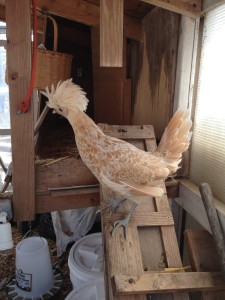
by Diane Masson | Aug 30, 2015

This is one of the chickens!
Would you build a chicken coop to have a senior move into your retirement community? Are chickens even allowed? What would your senior living community promise in order for a senior to move in? How many cats does your retirement community allow per senior resident? Would you increase it? Are you willing to take on two 100-gallon tanks of fish? One fish tank contains large koi and the other fresh water bala sharks.
“I still have my wits about me and don’t want to leave my animals,” said a prospective senior resident. “The administrator has promised me that he will take all my pets and if I pass away, he will let all of my precious chickens live with him at his home. He loves my chickens.”
This senior is waiting for a two-bedroom apartment to become available, but she has still not decided to actually move. Her family and friends (I am one of them) have been encouraging her to make a move for two years. She currently lives alone in a two-story home with a caregiver who helps several days a week.

One of the two fish tanks!
Who knows how many years my senior friend has left? I don’t know. What I do know is that my friend would thrive in a retirement community with live music and weekly entertainment. She used to be very active with dozens of friends and now she is isolated in her home with early dementia and a lack of mobility. My senior friend comes to life over a lunch or dinner conversation. I told her that she could have social connectivity everyday if she moved into a retirement community.
In my entire career, I have never heard of a senior living community accepting all the animals that my senior friend currently loves. Never have I ever heard of senior moving into a community with chickens. Have you? Would you allow any or all of my friend’s animals? I personally think she should jump on the offer and told her so. She is still deciding…Would you build a chicken coop to get a sale?
Do you know a senior that is struggling? Diane Masson’s new book can help walk you or them through, “Your Senior Housing Options.” Diane has helped educate thousands of seniors in her career and shares weekly real life stories like this one. Join her blog at Tips2Seniors.com or follow her on Facebook at Tips2Seniors.
Her first book “Senior Housing Marketing – How to Increase Your Occupancy and Stay Full,” has helped new and experienced senior housing professionals (assisted living, memory care, skilled nursing care and Continuing Care Retirement Communities) around the world. Both her first book and second book, “Your Senior Housing Options,” have a 5-star rating on Amazon.com.
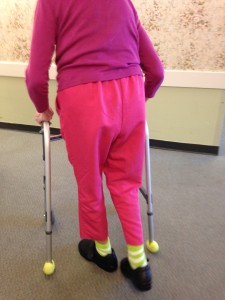
by Diane Masson | Aug 16, 2015
 I asked the same question to four memory care communities that were licensed as assisted living. The responses might surprise you and help you determine where to place your own mom or dad.
I asked the same question to four memory care communities that were licensed as assisted living. The responses might surprise you and help you determine where to place your own mom or dad.
What happens if my mother-in-law wakes up disoriented at 2:00 AM and gets up to find the bathroom? Then she falls…
Memory Care Community A – “When we find her, a med tech would evaluate her. If she hit her head or something major happened, then 911 is called. My husband asked about the med tech training. Is it like an emergency medical technician (EMT) with a minimum of 140 hours of medical training? She said, “No, it is like a CNA (Certified Nursing Assistant). There are specific criteria that they are trained on.”
Does someone go with the dementia resident if they go out 911? No!
Diane’s opinion: In my experience, no CNA has the medical expertise to make a judgment call on a fall. My mother’s assisted living community always sent my mom out 911 from a fall in the middle of the night. It happened five times. It was highly traumatic for her. When someone arrives at the emergency room with dementia, it is scary and confusing. It would disorient her for days after each traumatic adventure.
Memory Care Community B – “We have certain guidelines to know when to call 911. In the past month we have had two seniors go out 911. Eighty percent of the time falls do not require 911. We would call the family to meet the senior at the hospital.”
Does someone go with the dementia resident if they go out 911? No!
Diane’s opinion: Some assisted living communities ship senior residents out by 911 because they don’t want liability of a mistake. The pattern I am noticing is that if a community is licensed as an assisted living (board and care) and they do not have a 24-hour nurse, they get shipped out by 911 after a fall during the night.
Memory Care Community C – “If she got up at 2:00 AM, the motion sensors go off and a care manager goes into her room immediately. There are two care managers and a nurse. She will be assessed. If she is okay they will try to help her complete what she was trying to do initially, like going to the bathroom. If the fall is major, then the care manager will go to the hospital with them. If it is not major, she will be continually monitored every 15 minutes.”
Does someone go with the dementia resident if they go out 911? Yes!
Diane’s Opinion: This was the most impressive answer I received to my question. This community had a nurse on staff 24-7 and was priced at the high end of memory care communities. Bad news: My mother-in-law lived at this memory care community and fell. The answer they gave above does not match the reality of what happened. My mother-in-law was found on the floor beside her bed for an undetermined amount of time. Fortunately, she did not have to go out 911.
Memory Care Community D – “A motion sensor goes off, we assess her, and the nurse can be called. We are hesitant to send them out 911 unless absolutely necessary. We do send them out if they have had a head injury. Some places just call 911 but it is too hard on the families. A staff member will go with them to the emergency room.”
Does someone go with the dementia resident if they go out 911? Yes!
Diane’s Opinion: This memory care community had a nurse 14 hours a day. The longer they have a nurse on staff in a 24-hour period of time the more likely they have enough staffing to accompany a resident to the emergency room. Good news: My mother-in-law lived at this memory care community too. She fell and they did accompany her out 911 on several occasions. Thank you!
What Happens When a Senior Falls at 2:00 AM in Assisted Living?
This is a vital question that you need to ask in order to evaluate and choose an assisted living or memory care community for your loved one. Be proactive. Be an advocate. When someone has dementia it is very difficult for them if you pull them out of their normal routine, it can mess them up for days or weeks depending upon the severity of his or her dementia. Assisted living and memory care communities should not send out a dementia resident without accompaniment. My poor mother was always terrified and disoriented at the emergency room.
What has been your experience?
Your Senior Housing Options,” has a simplistic title, but what’s inside this new book can save a you months of research time. Hear Diane Masson’s interview of how her mother and in-law’s faced the pivotal decision to plan ahead or wait until a crisis. Learn the pitfalls from transitioning from your home to senior housing. Understand what questions to ask, insider tips and dirty secrets revealed. The decision to stay home requires caregivers. Prevent elder abuse by determining if a home care agency is reputable, before they move into your home. You are just not looking for today’s needs, but for your future care. Discover key differences between rental facilities vs Continuing Care Retirement Communities. Do you have enough financial resources if you need to be in a higher level of care for an extended period of time? For weekly tips join at: Www.Tips2Seniors.com
Diane Masson has worked in senior housing for 17 years and is the regional marketing director for two debt-free Continuing Care Retirement Communities in Southern CA (Freedom Village in Lake Forest and The Village in Hemet). Her first book “Senior Housing Marketing – How to Increase Your Occupancy and Stay Full,” is being utilized by senior housing professionals across the country. Both her first book and second book, “Your Senior Housing Options,” have a 5-star rating on Amazon.com.
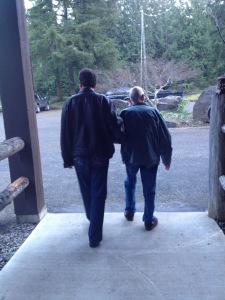
by Diane Masson | Jul 19, 2015
 End of life decisions are so difficult for an advocate to make for his or her’s senior parent. A few months ago, I had to make tough choices for my mom before she passed. A month ago, my husband and his family faced difficult choices for his dad.
End of life decisions are so difficult for an advocate to make for his or her’s senior parent. A few months ago, I had to make tough choices for my mom before she passed. A month ago, my husband and his family faced difficult choices for his dad.
My father-in-law, Bill, had been on home hospice with 24/7 care for about three months. He was frail (worn out from being a caregiver for his wife who had Alzheimer’s), had inoperable blockages in his heart, had four small strokes that my sister-in-law witnessed and was frustrated with early dementia.
He was reaching for the cat when he fell.
The hospital determined that his pelvis was fractured in multiple locations and his femur (thigh bone) was broken. So Bill would be bed ridden the rest of his life. Sigh…he was in so much pain.
They were turning Bill every two hours to prevent bedsores. He could only be on his back and the side without the broken femur. He was a two-person transfer.
The fall that sent him to the hospital was a non-hospice related incident so it was covered by insurance. With no hope of improvement the hospital determined that he was once again comfort care. So according to the hospital, he was a hospice patent who needed to move out of the hospital or pay privately.
The only skilled nursing care facility in the area was not an option (bad reputation). There were no hospice facilities in the local area.
So the only two choices were:
- Stay in the hospital for a cost of $48,000 a month.
- Go home with two around-the-clock caregivers for a cost of $32,000 a month (because he was a two person transfer). The going home option would require my sister-in-law to stay home (she works full time) and manage the caregivers. The family would have to reimburse her normal salary.
My wonderful but exhausted sister-in-law found a temporary solution, which she badly needed. It is called hospice respite care, which includes a 5-day stay. Medicare Part A will pay for up to five days of respite care for a hospice patent who is otherwise cared for in the home. It gives a break to the caregiver. It can be provided in a hospice facility, nursing home or hospital. So we started the 5-day clock and didn’t have to move Bill. He was so frail and moving him would have been horrible painful. He died about three days later, pain free, with family at his side.
He worked hard his whole life and the family agreed upfront to pay the $48,000 a month after the respite 5-day stay.
What if a senior does not have this kind of money or a home to sell?
My own 92 year old mother died in skilled nursing care on Medi-cal. It was in a caring compassionate 5-star rated skilled nursing community called Freedom Village in Lake Forest, CA. My mom was lucky. Many skilled nursing facilities that offer Medicaid assistance are not wonderful experiences.
Families need to research choices, advocate and make the best end of life decisions possible at the time.
Hospice Note: Our family’s goal was for Bill to die at home. My sister-in-law was fully prepared through hospice to make this happen. Bill’s devastating fall that required a two person transfer changed the situation. Just shifting him in his hospital bed was horribly painful. We could not imagine moving him in a ambulance at this point to any another location.
This situation is still very raw for me and it has taken me over a month to be able to write about this topic in my blog.
Your Senior Housing Options,” has a simplistic title, but what’s inside this new book can save a you months of research time. Hear Diane Masson’s interview of how her mother and in-law’s faced the pivotal decision to plan ahead or wait until a crisis. Learn the pitfalls from transitioning from your home to senior housing. Understand what questions to ask, insider tips and dirty secrets revealed. The decision to stay home requires caregivers. Prevent elder abuse by determining if a home care agency is reputable, before they move into your home. You are just not looking for today’s needs, but for your future care. Discover key differences between rental facilities vs Continuing Care Retirement Communities. Do you have enough financial resources if you need to be in a higher level of care for an extended period of time? For weekly tips join at: Www.Tips2Seniors.com
Diane Masson has worked in senior housing for 17 years and is the regional marketing director for two debt-free Continuing Care Retirement Communities in Southern CA (Freedom Village in Lake Forest and The Village in Hemet). Her first book “Senior Housing Marketing – How to Increase Your Occupancy and Stay Full,” is being utilized by senior housing professionals across the country. Both her first book and second book, “Your Senior Housing Options,” have a 5-star rating on Amazon.com.

 Almost everyone wears a mask out in public. It can be exhausting to hide behind a fake exterior and pretend we have it all together. I meet seniors and sales people everyday that seemed poised and polished to the world and yet they are terrified inside.
Almost everyone wears a mask out in public. It can be exhausting to hide behind a fake exterior and pretend we have it all together. I meet seniors and sales people everyday that seemed poised and polished to the world and yet they are terrified inside. 





